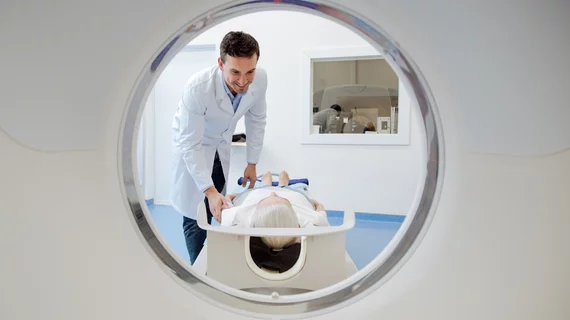Virtual reality game may alleviate children's fears of MRI scans
A 17-year-old Minnesota native has designed a virtual reality (VR) game to help prepare kids for MRI exams and alleviate pre-scan anxiety, according to an article published Nov. 4 by the Twin Cities Pioneer Press.
Michael Cao developed the 90-second VR game to honor his older sister who passed away as a child in 2009 from brain cancer. Cao remembers she was always scared to undergo MRI scans.
“It has been a long time since my sister had to go through this,” Cao told Pioneer Press. “It’s pretty great to see the families and children being more confident about it. It’s something my family would have benefited from.”
The app works by strapping virtual reality goggles equipped with headphones onto the patient’s head. As it begins, the wearer sees a cartoon image of a little boy on a hospital examination table and sees all around the virtual hospital room, according to the article. As the wearer looks around, a woman begins explaining what the MRI scan will be like as the cartoon boy lies on the table, slides into the MRI machine and starts the scan.
Then the game beings. As the wearer lies on the table, a purple circle appears in front of the patient and in the center of the circle is a red star. If the wearer moves their head, the star moves out of the circle, according to the article. The wearer wins the game by not moving their head and keeping the star inside the circle.
The application is currently being used Gillette Children’s Hospital in St. Paul, Minnesota.
Read the entire article below.

